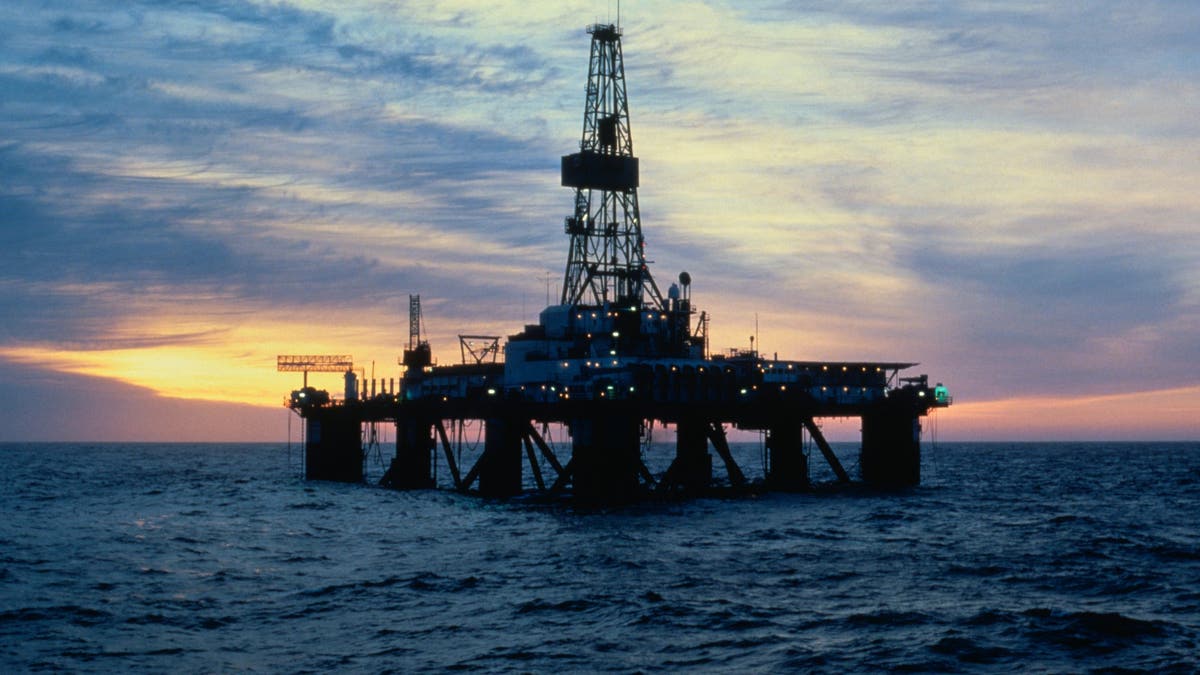Bill Hemmer braves subzero temperatures, endless icy landscapes in once-in-a-lifetime Arctic Circle visit
Fox News' Bill Hemmer walks viewers though his subzero Arctic Circle visit for his new Fox Nation special, 'Battle for the Arctic.'
The U.S. needs to remain aware of China and Russia’s ambitions to control the Arctic region, even if the public doesn’t realize the full value of the territory, an expert told Fox News Digital.
"That whole area … it does have, in a purely military context, it has importance," RADM (Ret.) Mark Montgomery explained.
"So, first, there's an absolute military context to this," Montgomery said. "Probably a close second is the economic context where China is heavily dependent on oil and natural gas deliveries."
"I think they're very concerned about strategic chokepoints like the Straits of Malacca and very aware that the United States has a pretty good capability to sink large-scale amounts of enemy merchants," Montgomery continued. "So they're looking for a path more so than through North America … around Russia through the north is what's called the Northern Sea Route."
Montgomery highlighted the incident in the week following President Biden’s announcement that he would not seek a second term, during which Russian and Chinese bombers flew near Alaska. U.S. and Canadian fighter jets intercepted and escorted the bombers out of the Alaskan Air Defense Identification Zone (ADIZ) – the first time Chinese bomber aircraft have flown through it.
U.S. Defense Secretary Gen. Lloyd Austin made clear that no plane actually entered U.S. airspace, but they got within 200 miles of the Alaskan coast. The increasing cooperation between Russia and China in recent years continues to trouble the U.S. military.

A Russian NTV channel grab taken August 3, 2007, shows a manipulator of the Mir-1 mini-submarine as it places a Russian state flag on the seabed of the Arctic Ocean at a depth of 4,261 meters (13,980 feet). (NTV/AFP via Getty Images)
The Arctic region has increasingly taken focus as part of that equation, leading the Pentagon to publish policy plans for the region, which labels the Arctic as "critical to the defense of our homeland."
"Our Arctic strategy will guide the department's efforts to ensure that the Arctic remains a secure and stable region," Deputy Defense Secretary Kathleen Hicks announced upon publication of the policy plan in July.
HAMAS TO RECEIVE UPDATED CEASE-FIRE PROPOSAL FROM ISRAEL AFTER ‘CONSTRUCTIVE’ TALKS IN EGYPT: REPORT
"Climate change is fundamentally altering the Arctic, and with it, geopolitics and U.S. defense missions," Hicks said. "The readiness of our forces for those missions is always foremost on our minds, and that's why for decades, across Republican and Democratic administrations, the department has been seeking to ensure our military capabilities can meet the mark, even in the face of a changing climate."
China has increased its presence in the Arctic, matching up with its efforts to expand its presence in the contested South China Sea and Straits of Taiwan, where the U.S. has also moved to contain and counteract Beijing’s ambitions.

A Russian serviceman stands guard by a military truck on the island of Alexandra Land, which is part of the Franz Josef Land archipelago, on May 17, 2021. (Maxime Popov/AFP via Getty Images)
"While not an Arctic state, the PRC seeks greater influence in the region, greater access to the region, and a greater say in its governance," Hicks said. "That's concerning, given that it's the only strategic competitor with the will and increasingly the wherewithal to remake the international order."
Much like in the contested waters around its region, China looks to exploit the land laws to try and exert influence: In the contested seas and straits, China has built artificial islands to expand its reach; in the Arctic, there are no land rights, and that makes it even easier to establish a claim so they control the sea routes and potential trade.
ITALY, CHINA ANNOUNCE 3-YEAR INDUSTRIAL COOPERATION PLAN AS EU-CHINA TRADE WAR FEARS LOOM
"I think you're going to see really challenging sovereignty claims up there," Montgomery said. "I think all the nations have inappropriate claims, but particularly the Russians — I think the Russians want to claim the North Pole itself as if the other countries didn't exist."
"That Northern Sea route gives you fuel savings, gives you an alternative — right now, it doesn't have payments like the Suez Canal," he argued. "When you do the shorter distance, there's not just less fuel but less payment for people and vessels … there's a real value to it."

The Sedco 709 offshore oil drilling rig in Davis Straight, between southwest Greenland and Baffin Island. (Getty Images)
Russia, for example, has tried to use the Lomonosov Ridge — the very edge of its continental shelf — to establish a claim over the Arctic, since international claims can vary. The BBC in 2020 reported that Russia, Denmark (via Greenland) and Canada have all tried to lay claim to the ridge and, by extension, part of the Arctic itself.
The country that manages to establish its claim also gets the rights to a roughly 200-mile exclusive economic zone, under international law as laid out by the U.N. Convention on the Law of the Sea, that gives the country rights to fishing, infrastructure building and extracting natural resources, among other rights.
CLICK HERE TO GET THE FOX NEWS APP
Montgomery pointed to reports that companies shipped over two million tons of "transit cargo" in 2023 through the Arctic, hitting a record amount of cargo, but he stressed the fact that companies can’t just push their existing ships into the region.
"It depends if they build great infrastructure," Montgomery advised. "You’re going to have to have better satellite coverage, better GPS coverage, better communications coverage," Montgomery said. "When you start to see those proliferate, then you're going to be able to expand the infrastructure associated with it."










































